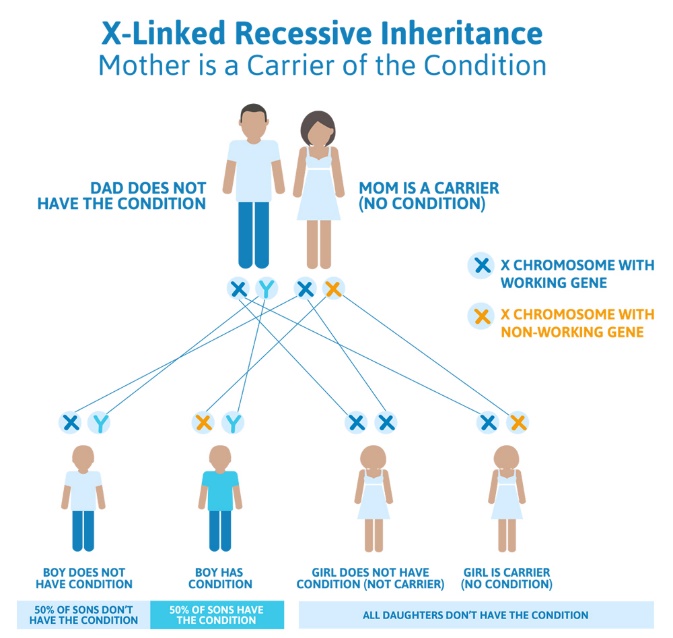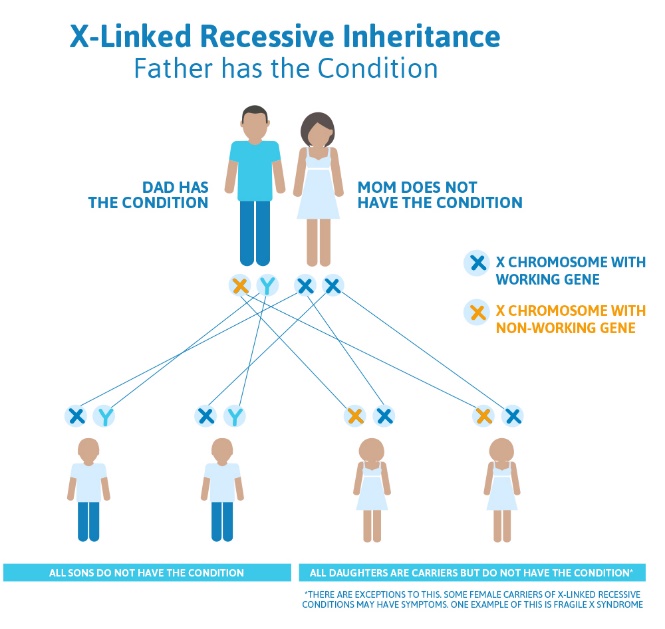For the first time, women who have the gene variant for x-linked hypohidrotic ectodermal dysplasias (XLHED) have another option to consider when they are family planning. They can choose to participate in a clinical trial called EDELIFE where researchers are testing a potential therapy in-utero on male fetuses with the condition!
It’s our greatest hope that this treatment will work and be on the market in the coming years. But, moms must know they have the gene variant that causes XLHED to take advantage of the treatment. The window to treat in utero is small.
Typically, males are diagnosed with XLHED more easily than females because they exhibit more typical symptoms. But, that’s not always the case for women. Because we want women with XLHED to know their treatment options should they want to have children, we are encouraging genetic testing to confirm diagnosis.

The challenging issue is that women may not know they carry the gene variant. Perhaps no one in their family is affected, or perhaps the mother isn’t diagnosed until they give birth to an affected male, or, maybe a woman has a male relative with XLHED but isn’t sure if she has it or how it’s inherited in families. There are lots of different reasons why women may not know if they have XLHED.
To help you better understand how XLHED affects women, how it’s inherited and, and why genetic testing is important for carrier status, Pilar L. Magoulas, M.S., C.G.C. a genetic counselor at Baylor College of Medicine who serves on our Scientific Advisory Council, helps explain:
XLHED is caused by variants in the EDA gene. This gene is located on the X chromosome.
Typically, males have one X and one Y chromosome (therefore, one copy of the EDA gene), whereas females typically have two X chromosomes (therefore, two copies of the gene). Males with XLHED are typically more affected than females because females have another copy of the gene on their other X chromosome to help compensate for the one that has the change.
Females may be considered a “carrier” of XLHED, which means that they carry/have the variant in the gene that causes XLHED but are not showing any symptoms. However, females with XLHED may also be “affected” and exhibit mild manifestations of any or all the features: some sparseness of the hair, patchy distribution of sweat dysfunction, and a few small or missing teeth. They may also notice deficient milk production during nursing or have underdeveloped nipples.
X inactivation is a normal process by which one of the copies of the X chromosome is inactivated in females. The inactive X chromosome is silenced. X-chromosome inactivation occurs randomly for one of the two X chromosomes in female cells during development. This process ensures that X-chromosomal genes are not expressed at twice the levels of expression in males (XY).
Inheritance and Recurrence Risk

If a woman is a carrier of XLHED, there is a 50% chance that each son will be affected and a 50% chance that each daughter will be a carrier, like the mother. The chance that her daughter who is a carrier will have symptoms is not predictable since this can vary within and between families.

If a man has the non-working gene, he will be affected. ALL of his daughters will be carriers. Since the gene is on the X chromosome, none of his sons will be affected because they inherit the Y chromosome from their father.
Importance of Genetic Testing for Carrier Status
Having genetic testing to confirm the diagnosis in yourself or your family is essential in understanding the condition and possible medical complications in yourself or your family, providing accurate inheritance and recurrence risk information to siblings, children, and other family members, and for participation in current and future research trials.
Clinical research trials often require the individual to know the specific gene and specific gene variant that are present in order to participate in research studies. Different research studies may recruit or enroll individuals with certain genes or certain variants, therefore, knowing your specific genetic variant is crucial.
In XLHED, current clinical research trials may be available to carrier women who are pregnant. Genetic testing before conception is preferred so that potential prenatal treatment options may be made available, however, genetic testing is recommended at any time and can be arranged by a local genetics specialist.
How to Learn More About EDELIFE
Clinical trials are happening now in Germany, with expected U.S. sites opening later this year. If you are interested in learning more or considering participation, please contact me at Mary@nfed.org or 618-566-2020.
